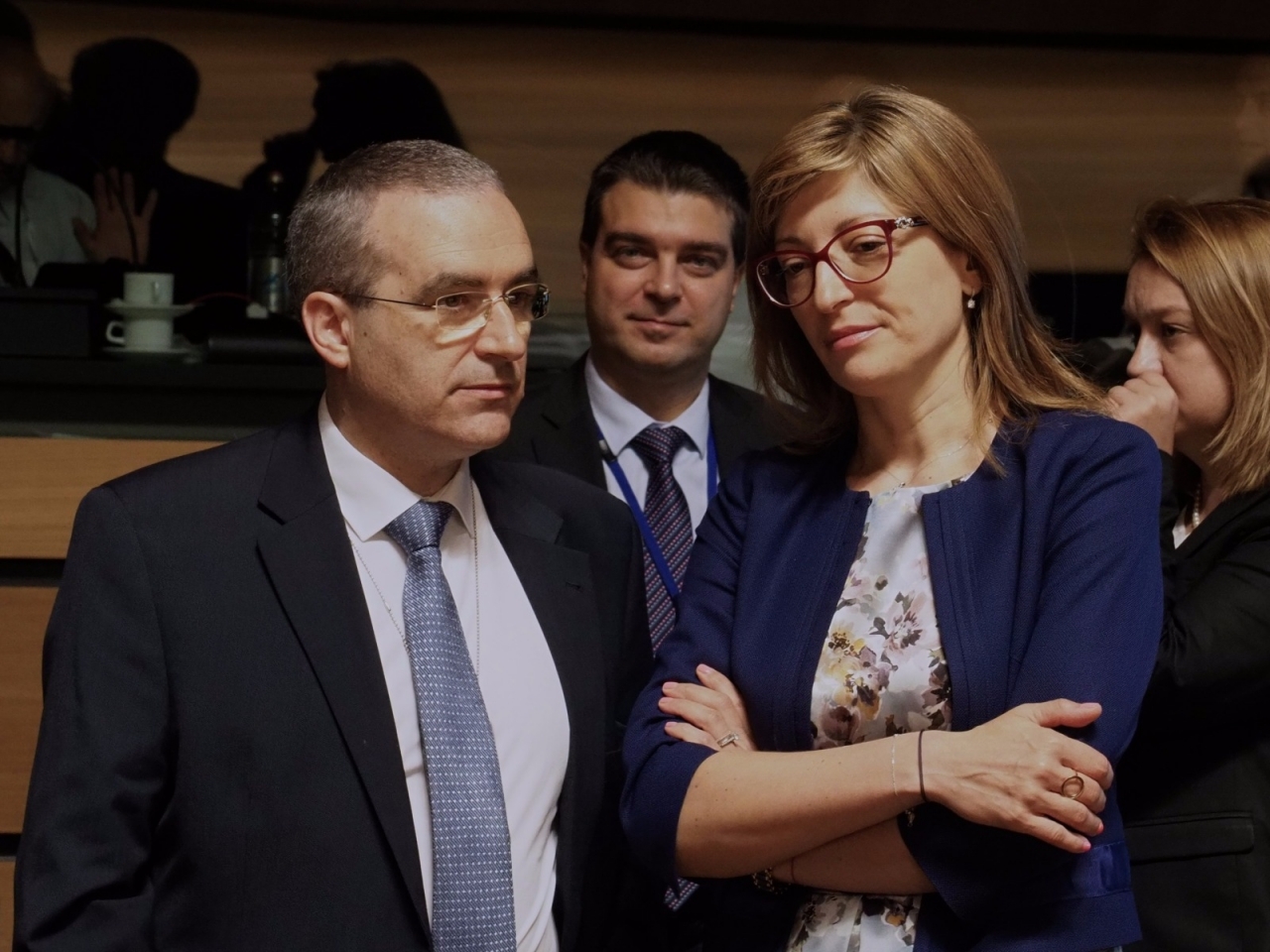Deputy Prime Minister Ekaterina Zaharieva paricipated in the Foreign Affairs Council meeting in Luxembourg
19 June 2017 News
On 19 June 2017, the Deputy Prime Minister and Minister of Foreign Affairs Ekaterina Zaharieva took part in the EU Foreign Affairs Council meeting in Luxembourg.
The meeting began with a minute of silence in memory of the victims of the fires in Portugal and London, as well as of the victims of the terrorist attacks in Britain and Mali.
High Representative of the Union for Foreign Affairs and Security Policy Federica Mogherini presented the first annual report on the implementation of the EU Global Strategy. Foreign ministers welcomed the progress achieved and confirmed the need of further deepening of security and defence cooperation in response to challenges to peace and security. An emphasis was laid on the importance of efforts to build the resilience of partners, the fight against hybrid threats, maritime security and strategic communication.
The top EU diplomats and the Deputy Secretary General of NATO Rose Gottemoeller discussed the implementation of the set of 42 actions for an enhancement of EU-NATO cooperation adopted as a result of the Warsaw Joint Declaration. While assessing positively the progress achieved, the sides noted the need for deeper interaction, including in possible new areas of cooperation like counter-terrorism. They agreed that deeper security and defence cooperation within the EU reinforces NATO’s European pillar and will contribute to strengthening the capabilities of the North Atlantic Alliance.
Minister Zaharieva welcomed the progress achieved in the EU-NATO cooperation and foregrounded the countering of hybrid and cyber threats, information sharing and situational awareness, border security, illegal migration and energy security. She stressed the importance of expanding interaction to new areas of cooperation, such as, say, the fight against terrorism.
Counter-terrorism figured high on the Council agenda. Ministers were unanimous that terrorism is among the main threats to global security. Liquidating Da’esh, countering the financing of terrorism, effectively addressing radicalisation and countering violent extremism, including online. An emphasis was laid on the importance of continued cooperation with the countries in the Middle East and North Africa, the Western Balkans and Turkey, Sahel and the Horn of Africa so as to cope with the common challenges of terrorism.
Ministers discussed the Fourth Progress Report on the Partnership Framework on Migration. Deputy Prime Minister Zaharieva stressed the importance of solidarity and support for the first-line Member States. She welcomed the progress achieved in implementing the Partnership Framework and stressed the need of broadening the geographical scope of partnerships to include key countries of origin and transit in the Middle East and Asia. She emphasised that the EU must remain vigilant about the Eastern Mediterranean Route.
The Council commended the results of the military operation of the Iraqi security forces in the campaign to drive Da’esh out of the country. The Council reiterated its steadfast support for Iraq’s unity, sovereignty and territorial integrity, as well as the EU’s readiness to support a stabilisation of the liberated areas and assist in the security sector reform efforts. The Council called on the Federal Government of Iraq and the Kurdistan Regional Government to build on their successful security cooperation in the campaign to liberate Mosul and to engage in a constructive dialogue on all issues across the political and economic spectrum.
Foreign ministers voiced concern over tensions in the relations between countries of the Gulf, recalling that the EU values its bilateral relations with all parties concerned. They expressed their support for the mediation efforts of Kuwait for de-escalation of tensions and finding a way out of the crisis.
An Eastern Partnership ministerial meeting was also held within the framework of the Council. The sides agreed that the four priority areas of engagement retain their topical relevance: strengthening institutions and good governance, increasing mobility and people-to-people contacts, taking advantage of market opportunities, and enhancing infrastructure connectivity. The readiness to promote political association and economic integration was confirmed, reckoning with partners’ ambition and goals.
